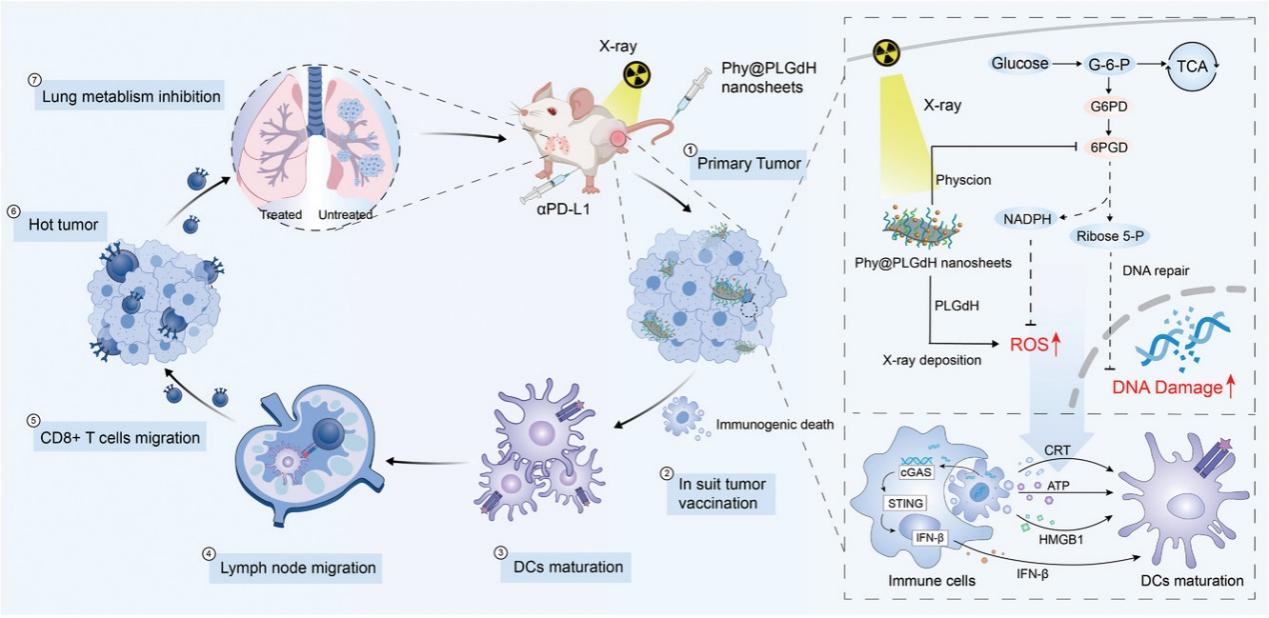researchers at the medical school of nanjing university have discovered a promising new approach to cancer treatment that combines high-z-sensitized radiotherapy with the intervention of the pentose phosphate pathway (ppp) for in situ tumor vaccination. the research paper titled “high-z-sensitized radiotherapy synergizes with the intervention of the pentose phosphate pathway for in situ tumor vaccination” has been published in the journal advanced materials (10.1002/adma.202109726). yuxiang wang and jing chen are the first authors of the paper, and associate prof. ahu yuan and prof. yiqiao hu are the corresponding authors.
the study has demonstrated the combination of high-z-sensitized rt and the intervention of the pentose phosphate pathway (ppp) can synergistically enhance the antitumor immune responses, potentially leading to the development of personalized cancer vaccines to promote tumor regression. this approach could potentially be used to treat a wide range of cancer types, including those that are currently resistant to conventional therapies, and represents a significant step forward in the development of novel cancer treatments (fig 1, advanced materials, april 1, 2109726, 2022).

fig 1 the combination of high-z-sensitized rt and the intervention of ppp synergistically promoted in situ tumor vaccination.
this research was supported by national key research and development program of china, natural science foundation of china (nsfc) and central fundamental research funds for the central universities.



